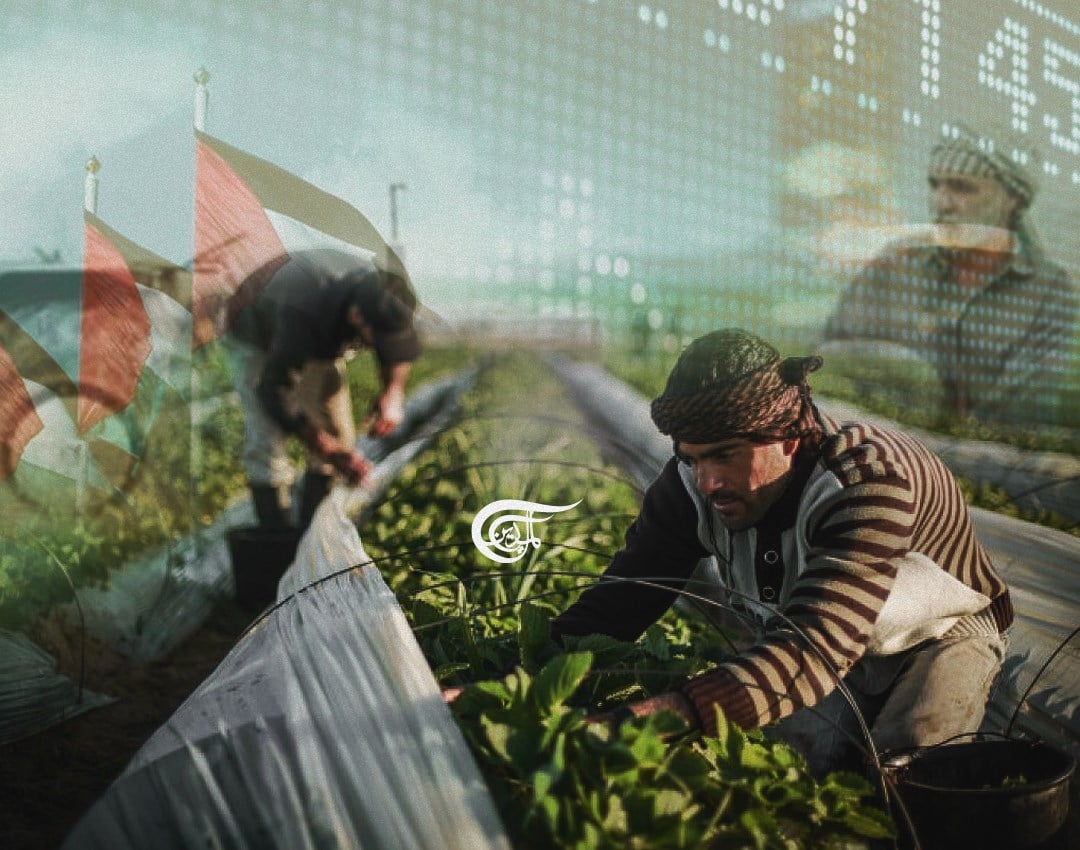Palestine and the free zone strategy
Zones bolster the imperialist market arrangement where peripheral states have an export-based economy, a maldevelopment of the internal market, low wages, and a low standard of living.
-

Palestine and the free zone strategy
The Free Trade Zone can conceptually be traced back to arrangements such as the Hanseatic League in Europe which was based on sea-faring trade and the ability to buy and sell at reduced tax rates or even situations with no taxes. The first 'modern' Free Trade Zone was in Shannon Airport in Ireland (1). Airports tend to be the most basic form of the Zone that probably all of us have interacted with at least once. The airport ' duty-free' zone; the place where one buys booze, candy, and small techie doodads. Now imagine that scaled up; a sealed-off area, usually walled in space where historically there has been a mix of production and logistics networks.
In the 1980s, when this Zone strategy first began to globalize, we knew these as 'Maquiladoras'; glorified sweatshops. These Maquiladoras were signified by no labor regulations (anti-union), scant health code regulations, and zero environmental protection standards. They formed one major tactic in the overall strategy of the neoliberal project; what we know as the beginning of 'offshoring'. As neoliberalism began to gather steam in the late 1980s and 1990s, the focus on production gave way to more of a focus on logistics and financial enterprises (container shipping, holiday schemes, business parks, call centers). Transport companies such as Maersk benefited greatly from this strategy of accumulation. Although the focus on production was waning, it was still roughly 50/50 during this time period. If one had to pick a rough date of when logistics and the offshoring of non-productive labor began, it would be about 2004-2006.
From here we can see a great divergence in Zone strategies, for example, Dubai. Dubai is not a 'city' per se. It is a conglomeration of many different Zones. 'Dubai Media City' is the part of the city that contains more liberalized free speech laws, and thus, the foreign HQ of many media companies. Then, there is 'Dubai University City' which is a section of the city where (mainly) Western Universities have research satellite campuses. Harvard, Yale, and MIT all have campuses in Dubai. What I mean when I say Dubai is not a city is that Dubai has no organic social fabric. It is not an ancient city like Bruges or Beijing that can be traced back 1000s of years within the framework of a civilizational project. It is essentially a modern creation that started at first with oil money and now Zone money.
Another example is Seychelles or The Virgin Islands. These types of Zones are what we think of when we imagine money laundering schemes. Foreign-owned banks operate at little to no overhead cost and allow transactions in hegemonic currencies. Here, capital investment is rewarded by tax holidays, duty-free purchasing, low to no import-export fees, etc. Seychelles offers citizenship to anyone who invests $100,000,000 or more into their Zones. In sum, these are the most 'neoliberal' of the Zones if by neoliberal we mean an increasing separation of production and finance in the world economy, where finance takes the lion's share.
In occupied Palestine, the Zone strategy straddles the line between production, finance, dispossession, and accumulation. There is the production that occurs, and it promotes a form of financial normalization with the Zionist usurping entity.
As recently as June of 2014, the PA’s Ministry of Agriculture, which originally encouraged farmers to plant watermelons with promises to promote and protect their crop, was forced to allow an overflow of cheaply produced watermelons from "Israel" to enter the Palestinian market under the protection of the Israeli army (2).
Here is an example of the comprador role played by the PA in regard to agricultural land. This is how the PA participates in the shrinking of 'their own' economy. Yet, as we know with the PA, a great many of the jobs they 'provide' are police and security jobs within the West Bank (3). So the industry of securitization is promoted at the expense of the local agricultural and industrial networks. Another example is Egypt, which has a number of 'Qualifying Industrial Zones' (QIZs) where the companies and the Egyptian government receive kickbacks for ensuring that at least 10% of the goods which travel through Zones are "Israeli". So not only are Palestinian farmers stripped of their land in order to build these Zones, the dispossessed farmers are often the ones who then build the Zones and work in the sweatshops inside. All of this benefits the Zionist usurpers.
This is the interview that Rania Khalek did regarding neoliberalism in Palestine, and her host, Kareem Rabie, gave a good breakdown of how this works, but also how the Palestinian bourgeoisie facilitates this process of dispossession under the guise of 'investing in Palestine'.
The expansion of Zones in Palestine is crystallized in the ‘city’ of Al Rawabi; an enclave for the top 1% of Palestinian society where they can enjoy the fruits of their blood money and normalization with the Zionist usurpers. It is guarded and cordoned off from regular Palestinian life. Rabie talks about Al Rawabi and other projects in which the Palestinian bourgeoisie partake. This neoliberal, 'Zone as City' can be seen in Abu Dhabi as well with the creation of Masdar City, considered the first 'totally green' city in the Gulf. Here the Emirati government has made a state-capitalist trust with foreign investors and together they make their own laws. Even more harrowing are the 'Bitcoin Cities' we are seeing in some countries like Nigeria and Senegal. They have all the characteristics of the other Zones and also have their own currency, which is the only legal tender in the Zone. This traps everyday people in the fin-tech matrix.
The Zone strategy has always been touted, especially by UNCTAD (United Nations Conference on Trade and Development), as an effective means of development and modernization. Here, the work of Samir Amin - an Egyptian-French Marxian economist, political scientist, and world-systems analyst - can be quite instructive. Amin shows us how peripheral capitalist states get captured into export-based economic arrangements. These arrangements lead to maldevelopment of the internal market and disarticulation between sectors I-IV of the economy (4). The overdevelopment of the export sector means that very few goods are kept inside the country to be sold on some form of internal market.
Another disarticulation of the internal market is that a majority of the money that stays in the country is disguised in the form of wages. These are wages that can be exogenously depressed in order to keep the profits of multinationals high. Here, we turn to UTSA and Prabhat Patnaik. For example, Multinational A usually buys 6 units of goods from Zone B. Zone B is capable of producing 10 units of goods, but they keep 4 for their internal market. Multinational A then experiences a crisis of consumption at home. So now Multinational A buys 9/10 units of goods from Zone B. Instead of giving Zone B (and their government) the means for augmenting the land and yielding more units, they shrink the internal market of Zone B. Thus, the internal market is now 1/10 units of goods. This does two things:
1) It induces an external shock/shrinkage of the economy of the country where Zone B is hosted.
2) This leads to an increase in prices of the units of goods in Zone B's host country, which means less of the wages earned by workers are used to stimulate the internal market.
This is how Zones bolster the imperialist market arrangement where peripheral states have an export-based economy, a maldevelopment of the internal market, low wages, and a low standard of living. Another crucial aspect of this is capital repatriation. Many companies like to have their HQs in a place like Dublin because they have laws that are very friendly to multinationals. Low taxes, etc. Simply put; an American company, headquartered in Dublin, is repatriating profits from Bangladesh to Dublin, and then to the pockets of the CEOs in the USA.
References:
1- Easterling, Keller. Extrastatecraft: The Power of Infrastructure Space. 2008. Verso Books. London.
2- https://al-shabaka.org/briefs/palestinian-farmers-a-last-stronghold-of-resistance/
3- Clarno, Andy. 2017. Neoliberal Apartheid: Palestine/Israel and South Africa After 1994. University of Chicago Press.
4- Amin, Samir. 1974. Accumulation and Development: A Theoretical Model. Review of African Political Economy.

 Hanna Eid
Hanna Eid
 8 Min Read
8 Min Read











